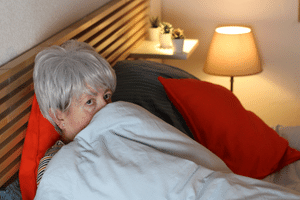
Communicating Effectively with Elders
Empathy meets action in this course. Your staff will learn proven communication strategies to navigate tough conversations, reduce frustration, and connect with elderly clients in a way that truly matters.
Duration: 45 minutes | Format: SMS | Certificate included
Learn the Secrets to Communicating with the Elderly—With Clarity, Confidence, and Care
Communicating with older adults can feel challenging, especially when caregivers aren’t sure how to phrase things, how to read emotional cues, or how to avoid misunderstandings. Age-related changes, cultural differences, and communication barriers often leave caregivers feeling unsure, and clients feeling frustrated or unheard.The Communicating Effectively with Elders Training Course gives caregivers the tools to connect with empathy, respect, and reassurance. Learners explore active listening, therapeutic communication, cultural awareness, non-verbal cues, and common communication barriers—along with practical strategies to navigate difficult conversations and build trust with elderly clients and their families.
By the end of this course, caregivers will know how to communicate clearly, reduce miscommunication, and respond to client needs with confidence. This leads to stronger relationships, improved care outcomes, and a more positive, compassionate care experience for every client.
Course Goals:
✅Define the importance of effective communication
✅Describe how effective communication works
✅Define active listening and barriers to effective communication
✅Explain how attitudes, culture, physical, and emotional barriers affect effective communications
✅Describe ways to communicate with respect and compassion
✅Discuss how to effectively start a conversation
Course Objectives:
By the end of this course, the learners will be able to:
✅Improve appreciation & respect for how culture, attitudes, physical, emotional, non-verbal signals and age barriers can affect communication, care and teamwork
✅Demonstrate active listening skills while providing care
✅List three different attitudes that affect communication
✅Demonstrate the ways on how to be a good listener
✅Use different types of open-ended questions to start conversations
✅Reduce client complaints due to poor communication
Lesson 1: Effective Communications
Lesson 2: Attitude & Communication
Lesson 3: Be an Effective Communicator
Lesson 4: Cultural Differences
Lesson 5: Barriers To Communication
Lesson 6: Active Listening
Lesson 7: Therapeutic Communication
Lesson 8: Respectful Communication
Lesson 9: Conversation Starters
What's in this course
Learning Level : Beginner
Duration: 45 minutes
Format : SMS
Quizzes: 18
Lessons: 9
Certificate: Digital Certificate of Completion
This course is brought to you by:

Frequently asked questions
Employees receive text messages containing a concise 5-minute lesson. These lessons are interactive and followed by quizzes to ensure understanding and retention. Our platform is designed for convenience, allowing employees to learn on-the-go without disrupting their workday.
The course is runs for 45 minutes, that's 5 minutes per lesson. Lesson frequency can be adjusted.
Yes, certificate pass rates and more can be configured within the admin panel.
Yes, content is refreshed annually with the latest research.
Related courses

Basic First Aid Training

Bathing Assistance Basics Training Course

